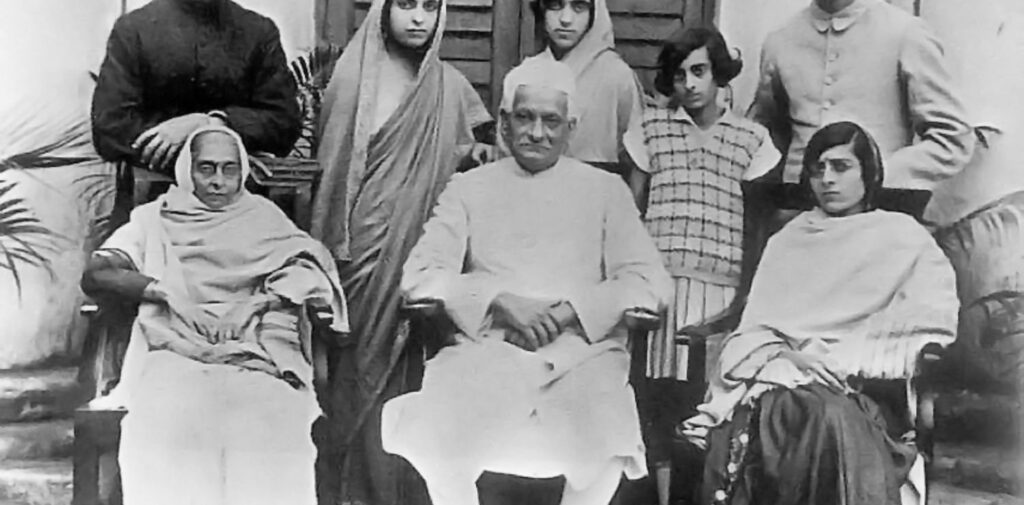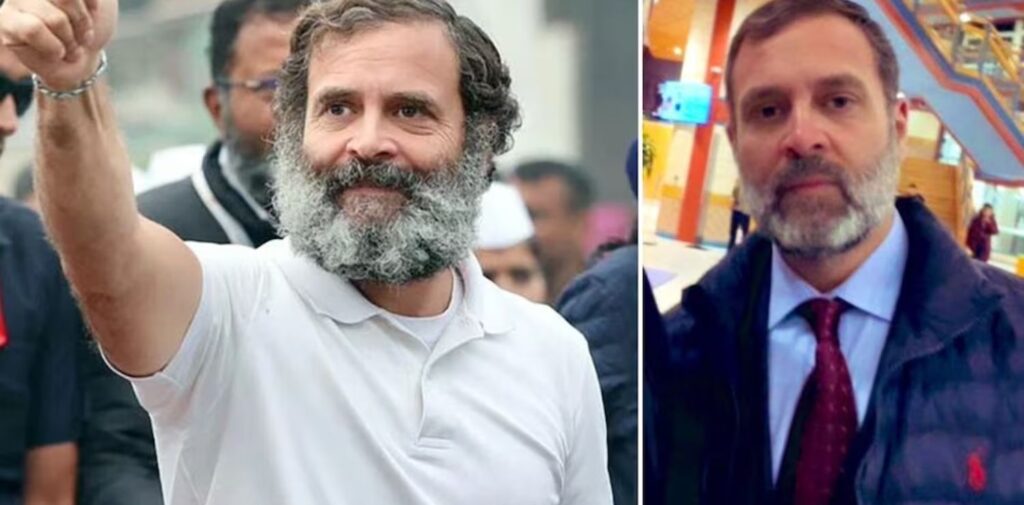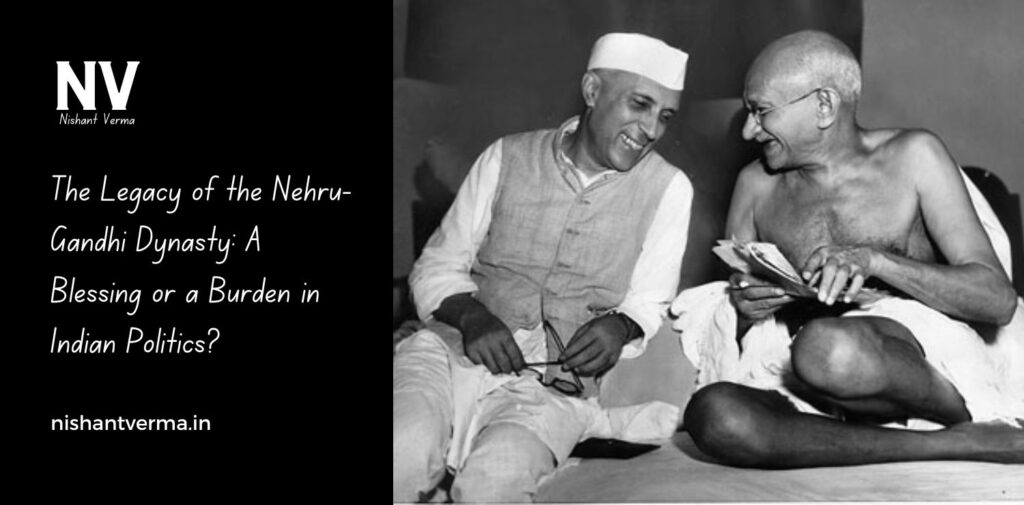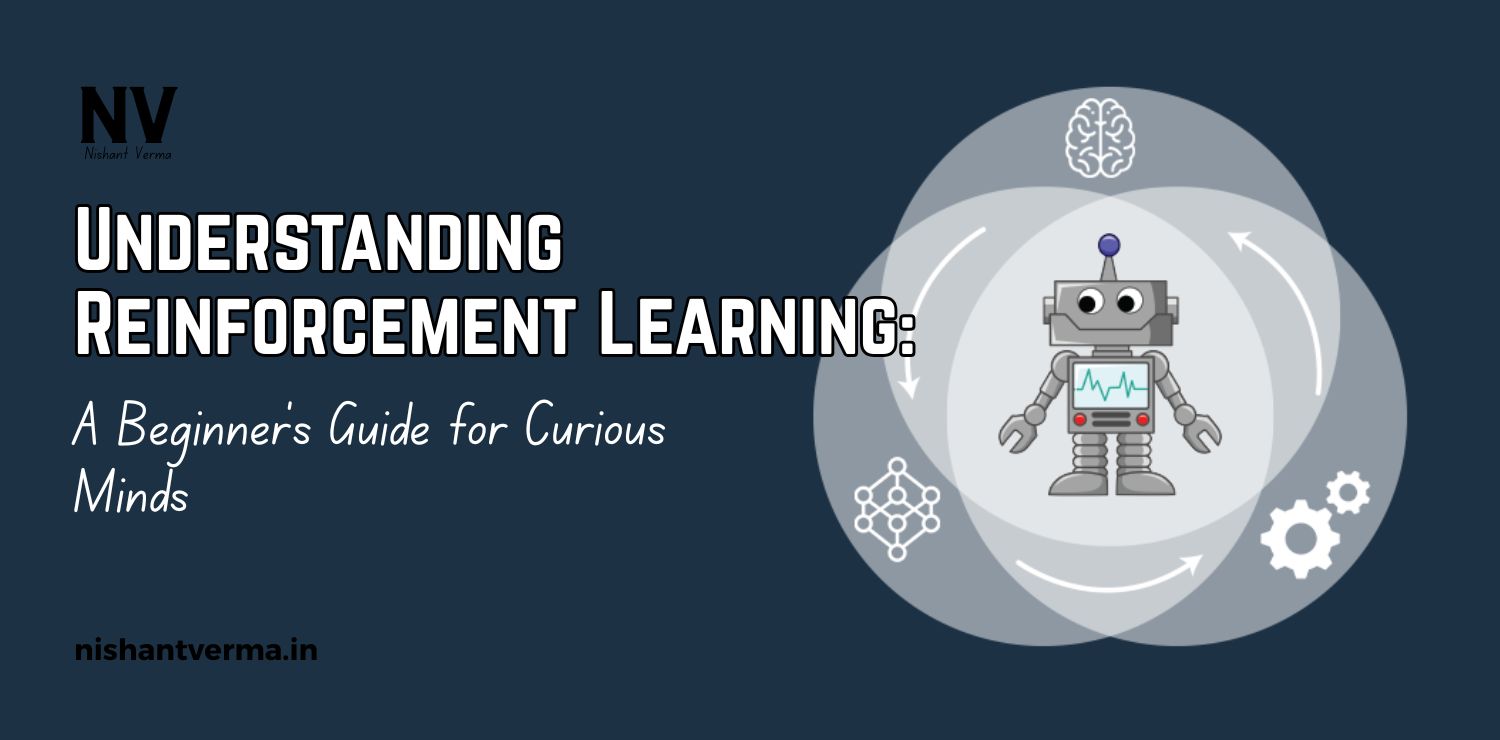The Nehru-Gandhi dynasty has played a significant role in shaping India’s political landscape. Over the years, the family has been central to the country’s governance, guiding its political narrative from the time of independence to the present. However, as India moves forward in the 21st century, the question arises: is the legacy of this powerful family one of continuity or stagnation in Indian politics? Let’s explore this idea in a simple and easy way.

The Nehru-Gandhi Family: A Political Powerhouse
The Nehru-Gandhi family’s political journey began with Jawaharlal Nehru, India’s first Prime Minister, who played a crucial role in India’s independence and its early years as a democratic republic. Nehru’s leadership helped set the direction for India’s future, promoting secularism, democracy, and economic development. His policies shaped the country’s political and social fabric for decades.
After Nehru, his daughter Indira Gandhi took over the reins of the Congress Party and became the Prime Minister of India. Indira’s rule was marked by bold decisions like the nationalization of banks and the Green Revolution, which helped India become self-sufficient in food production. Despite her controversial Emergency period (1975-77), where civil liberties were suspended, she remains one of the most influential leaders in Indian history.
Following Indira’s assassination in 1984, her son Rajiv Gandhi became the Prime Minister. Rajiv introduced economic reforms and tried to modernize the country’s technology sector, though his time in power was cut short by political challenges and corruption charges.
Since then, the family has remained a dominant force in Indian politics. Sonia Gandhi, Indira’s daughter-in-law, took over the leadership of the Congress Party in the 1990s, and her son, Rahul Gandhi, has led the party in recent years. The family’s continued presence at the helm of the Congress Party has often raised debates about whether the Nehru-Gandhi dynasty has been a source of strength or weakness for Indian politics.
The Case for Continuity
One of the key arguments in favor of the Nehru-Gandhi family’s continued dominance in Indian politics is the sense of continuity it provides. India, being a diverse and complex country, needs a stable leadership that can bridge divides and unite people. The Nehru-Gandhi family has played this role, often acting as a unifying figure for the Congress Party, especially in times of crisis.
Leadership and Stability:
The family has provided consistent leadership to the Congress Party, which is one of the oldest and most important political parties in India. Through the years, they have managed to maintain the party’s relevance, despite challenges from regional parties and new political forces. In times of political instability, the Congress Party, under the leadership of the Nehru-Gandhi family, has often been seen as a stabilizing force.
Commitment to Secularism and Democracy:
The Nehru-Gandhi family has championed the cause of secularism, pluralism, and democracy in India. Jawaharlal Nehru, in particular, strongly advocated for these values, which became foundational principles of India’s political system. The family’s commitment to democracy, human rights, and the rule of law has played a key role in shaping India’s identity as a democratic nation.

Nation-Building and Economic Progress:
Under the leadership of Indira Gandhi, the country witnessed significant progress, such as the Green Revolution, which made India self-reliant in food production, and the nationalization of banks, which aimed at bringing economic control under the government’s control. These measures helped to develop the country’s economy and improve the lives of millions of people. Even in the 21st century, the policies that were put in place during the Nehru-Gandhi era continue to impact the country’s growth and development.
The Case for Stagnation
Despite the many achievements of the Nehru-Gandhi family, there are several reasons why some critics argue that their legacy has led to stagnation in Indian politics. Over the years, the family’s grip on power has been seen as both a strength and a weakness.
Dynastic Politics:
One of the biggest criticisms of the Nehru-Gandhi family is the dynastic nature of Indian politics. Critics argue that the family’s control over the Congress Party has prevented the rise of new leaders within the party and limited opportunities for fresh ideas and perspectives. This has often led to the feeling that the Congress Party, under the Nehru-Gandhi family, is more focused on maintaining power rather than promoting real political change.
Lack of Internal Democracy in the Congress Party:
The Congress Party has often been accused of being a party where decisions are made at the top, with little input from lower levels. This lack of internal democracy and decentralization has made the party seem disconnected from the people’s needs. Critics argue that the Nehru-Gandhi family has maintained this structure, which has led to a lack of accountability and transparency within the party.
Failure to Adapt to Changing Times:
As India’s political landscape has evolved, there are concerns that the Congress Party and the Nehru-Gandhi family have failed to adapt to the changing needs of the country. With the rise of regional parties and new political movements, many believe that the Congress Party has become disconnected from the people it once represented. The family’s inability to connect with younger voters and their reluctance to embrace new leadership within the party has led to declining popularity.
Electoral Defeats:
In recent years, the Congress Party has faced several electoral defeats, most notably in the 2014 and 2019 general elections. The loss of power at the national level and the decline in the party’s influence in several states have raised questions about the effectiveness of the Nehru-Gandhi family’s leadership. Despite attempts at revitalization, the family has struggled to regain the confidence of the electorate.

The Role of Rahul Gandhi: A New Beginning?
In recent years, Rahul Gandhi, the great-grandson of Jawaharlal Nehru and grandson of Indira Gandhi, has taken a more active role in leading the Congress Party. His tenure has been marked by efforts to modernize the party, connect with the youth, and push for more inclusive policies. However, his leadership has been questioned by critics, and the Congress Party’s poor electoral performance under his leadership has fueled debates about the future of the Nehru-Gandhi dynasty.
Rahul Gandhi’s leadership style has been seen as less assertive compared to his predecessors. Some believe he lacks the charisma and decisiveness that his grandmother, Indira Gandhi, and mother, Sonia Gandhi, possessed. Others argue that Rahul Gandhi’s efforts to reshape the party and bring about internal reforms have been undermined by his family’s dominance and the public’s perception of dynastic politics.
Despite these challenges, many believe that Rahul Gandhi still has the potential to bring a new vision to Indian politics, especially if he can break free from the legacy of his family’s past and build a more inclusive and democratic Congress Party. This will require a willingness to accept change, foster new leadership, and reconnect with the Indian masses.
Conclusion: The Legacy Lives On
The Nehru-Gandhi family has undeniably left a lasting impact on Indian politics. From the days of Jawaharlal Nehru to the present day, the family has shaped the direction of the country in many ways. While some view their legacy as one of continuity and stability, others see it as a source of stagnation due to the dynastic nature of Indian politics and the Congress Party’s struggles to adapt to changing times.
As India continues to evolve, the future of the Nehru-Gandhi family in politics will depend on their ability to evolve with the times, embrace internal reforms, and connect with a new generation of voters. Whether they can overcome the challenges of dynastic politics and revitalize the Congress Party remains to be seen. In the end, their legacy will be shaped not just by their past achievements but by their ability to navigate the complex and ever-changing political landscape of modern India.




